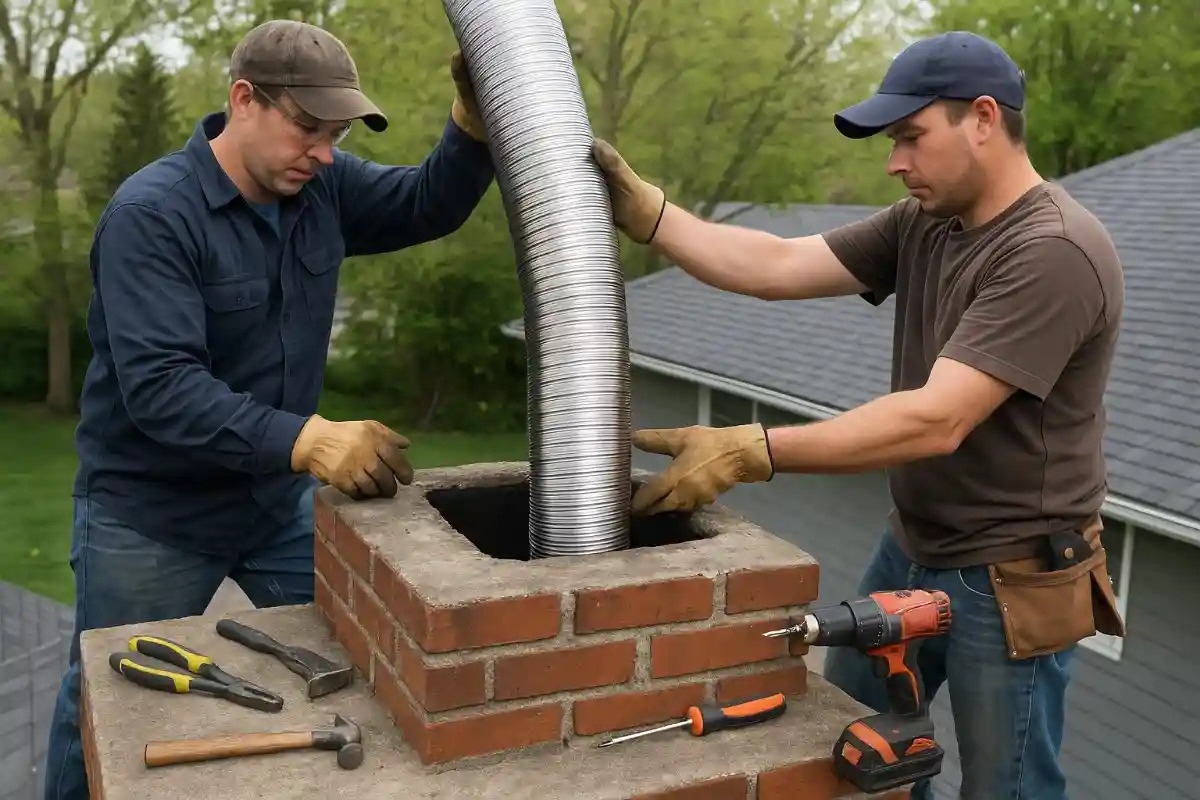If you live in Birmingham and own a home with a fireplace, you’ve probably wondered if your chimney is really doing its job as well as it could. Chimney liners aren’t exactly the most exciting home upgrade, but they play a much bigger role in your comfort and safety than most people realize. Let’s dig into whether investing in an insulated chimney liner is worth it for your Birmingham home, and see why the right Chimney Liner can actually make a world of difference.
Key Features: What Sets Insulated Chimney Liners Apart?
When you hear “chimney liner,” you might picture a basic metal tube, but insulated versions are a whole different animal. The main upgrade here is the extra layer of insulation wrapped around the liner itself. This insulation helps keep the heat inside the liner and prevents it from leaking out into the chimney masonry or surrounding walls.
Here’s a quick comparison to help you understand what makes insulated liners unique:
| Feature | Standard Liner | Insulated Liner |
|---|---|---|
| Heat Retention | Average (heat loss possible) | Excellent (minimizes heat escape) |
| Condensation Control | Minimal | Greatly reduced condensation |
| Energy Efficiency | Standard | Improved |
| Creosote Buildup | Can build up faster | Builds up more slowly |
| Lifespan | 10–15 years | 15–25 years (with care) |
Insulated liners are built to last longer and stand up to the stress of regular fires and temperature swings. If you use your fireplace often, or just want to avoid as many repairs as possible, this kind of liner might be the right call.
Safety: Peace of Mind with Every Fire
Safety is the number one reason most folks think about upgrading their chimney in the first place. Regular liners do help, but insulated liners really take it up a notch. With Birmingham’s chilly, damp winters, condensation inside your chimney can sometimes cause the masonry to crumble or even lead to mold. Insulated liners act like a blanket, keeping the heat in and the moisture out, which means less chance of damage or dangerous fumes sneaking back into your living room.
“A warm home is wonderful, but a safe home is priceless.”
Another big plus: insulated liners lower the odds of a chimney fire. Creosote, a flammable substance that builds up in chimneys, doesn’t form as quickly in insulated liners because the temperature stays steadier. That’s one less thing to worry about, especially if you burn wood regularly.
Cost: Is the Upgrade Worth Your Money?
The upfront cost of an insulated chimney liner is going to be higher than a basic metal one, no way around it. In Birmingham, prices can vary based on the size of your flue, the complexity of the install, and the brand you choose. But before you wince at the price tag, it’s important to weigh that against the potential savings down the line.
Think about it: a better liner means fewer repairs, less creosote buildup, and possibly even lower heating bills because your chimney’s working more efficiently. Plus, if you ever sell your house, having a modern, insulated liner can be a strong selling point in Birmingham’s competitive housing market.
If budget is tight, you might be tempted to stick with the basics. But if you see your home as a long-term investment, going for the insulated option often pays off in peace of mind and fewer headaches later.
Emergency Service: Quick Fixes When You Need Them Most
No one likes to think about chimney emergencies, but they happen—especially in older Birmingham homes. A sudden chimney leak, a blocked flue, or a surprise gust of smoke can turn a cozy night into a stressful ordeal. The good news? Upgrading to an insulated liner can make emergency repairs less likely in the first place.
And if you ever do need urgent service, chimney professionals often find that insulated liners are easier to access and repair than traditional types. That means less time spent fixing problems and more time enjoying your fireplace. Some companies in Birmingham even offer 24/7 emergency support, so you’re not left shivering in the cold if something goes wrong.
FAQs on Insulated Chimney Liners in Birmingham
Q: How often should I have my insulated liner inspected?
A: Once a year is ideal. Even though insulated liners are tough, it’s smart to catch any issues early.
Q: Will an insulated liner work with gas and wood-burning fireplaces?
A: Yes, most insulated liners are designed for both gas and wood-burning appliances, but always double-check with your installer.
Q: Does installing an insulated liner make my chimney completely maintenance-free?
A: Not quite! You’ll still need to sweep and inspect it, but you’ll likely face fewer big repairs and less creosote buildup.
Q: Can I install an insulated liner myself?
A: It’s possible, but not recommended unless you have experience. Mistakes can be costly and dangerous, so most folks hire a pro.
Conclusion: Is an Insulated Chimney Liner Right for You?
To wrap it up, upgrading to an insulated chimney liner in Birmingham isn’t just a fancy add-on—it’s a smart, long-term investment in your home’s comfort, safety, and value. While the initial cost may feel steep, the benefits add up over time: fewer repairs, less worry about fires, and more efficient heating. If you want to keep your home cozy and safe through the unpredictable Birmingham weather, considering an insulated Chimney Liner might just be one of the best choices you make.
Read more : Birmingham Chimney Sweep

